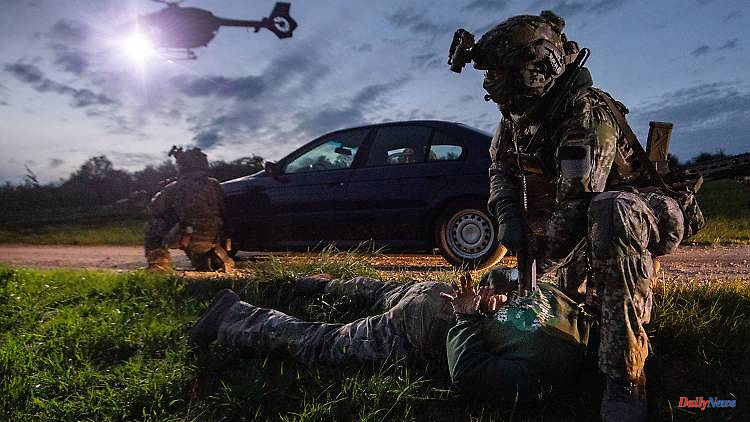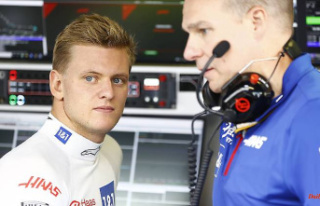Two years ago, the future of the Special Forces Command was hanging in the balance after cases of extremism. A reform program is now almost fully implemented. The commander looks ahead a year after assuming command.
The commander of the Bundeswehr's Special Forces Command (KSK), Brigadier General Ansgar Meyer, sees the elite association, which has been shaken by cases of extremism, "on the right track" after a few reforms. "With the current status of the reform process, the KSK has the opportunity to focus on deployment and operational readiness again. That's important," said Meyer a year after taking office and a few days before the formal completion of a 60-point program for changes.
Meyer was also the last commander of the German contingent in Afghanistan before moving to the KSK location in Calw in Baden-Württemberg in September last year. "The vast majority of the KSK has faithfully and loyally carried out its mission. These men and women are going along with the reform process that has been embarked on with deep conviction," said Meyer. Because of the special camaraderie and the necessary relationship of trust, there was not enough reaction in the past. "Wrong developments were not recognized early on and no countermeasures were taken. After a year as the responsible commander, I believe that a lot could have been avoided," he said.
A good two years ago, the future of the elite unit seemed to be hanging in the balance. There had been right-wing extremist incidents, the discovery of a weapon cached by a soldier and irregularities in the handling of ammunition. The 2nd KSK company was disbanded in July 2020. However, many of the suspects were no longer there by that time.
The KSK visitor center will open in Calw on Tuesday. It is intended to stand for more transparent public relations work and contribute to better integration of the KSK in the Bundeswehr and in society.
The change in the security policy situation throughout Europe after the Russian attack on Ukraine has now also reached the KSK. According to Meyer, the association is ready for orders to defend the partners in the transatlantic alliance. The plans for this are currently being reworked in NATO. There is already a partner program with Lithuania and increased cooperation, which will later be extended to the other Baltic States and Poland.
The tasks of special forces include rescuing hostages and evacuation operations, but also reconnaissance behind enemy lines and combating so-called high-value targets. "We have many skills. Do these skills still fit an extended range of tasks? That must now be critically examined. Of course, this must also be supported politically," said Meyer. And: "There are special forces in the world that also officially have the portfolio to destabilize states. That would be difficult for me to imagine from a German point of view."
The way the KSK is trained, the command can also carry out tasks within the framework of the alliance's defense "which can achieve a relatively high effect with a small amount of force," said Meyer. There must be a discussion about the possibilities and limits. Meyer: "At the moment I would see the task of special forces in such a case as more of fighting special forces who are trying to attack us. So educate, fight, prevent that from happening at all."
The conflict in Ukraine shows that special forces are used in a variety of ways and not always in special operations. Meyer: "Especially the Ukrainian special forces were able to solve many situations in the fighter battle, were able to resist, were able to bring attack spearheads to a halt because they were highly professional, well trained, well equipped and able to react quickly." Meyer pointed out the consequences of deployment decisions: "You have to be aware that there is no such thing as a clean war. There will always be collateral damage, there will always be victims."
Finding suitable soldiers for the KSK in sufficient numbers remains a difficult task. "I need the commando soldier who can take a five-story house by storm and is still fit enough to decide mentally: shoot or not shoot," said Meyer. "Everything has to be right and coherent". "Ultimately, if it were a matter of freeing a hostage, for example, you have to decide in fractions of a second: This is the hostage. This is possibly a hostage-taker who is endangering us both, the hostage and me. And this is a bystander." Working together in small groups is a key to success. The General: "Our main weapon system is the team."












